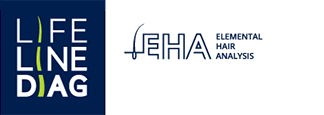
Modern women are suffering from more and more hormonal disorders and related symptoms, which include irregular, painful menstruation, periodic swollen and tender breasts, decreased libido, as well as breast and genital tumours. They are also increasingly getting treated for infertility. However, not everyone is aware that the symptoms of hormonal imbalance also include common fatigue, bloating, flatulence, constipation, and a sluggish metabolism; most people also don’t know that hormonal disorders don’t affect only women, and are also a problem for many men.
Hormones are negatively affected by a fast-paced lifestyle, stress, stimulants, insufficient sleep, contaminated water that we drink and wash in, excess oestrogens in the diet, exposure to pesticides, plastics and chemicals (so-called xenoestrogens), as well as a mineral imbalance caused by these factors. All this disturbs the hormonal balance and has an extremely negative impact on our physical and mental health.
‘When everything is going smoothly, hormones maintain order in the functioning of the body, but hormonal chaos can lead to a revolt in the digestive system and a disruption in the work of the whole body,’ – wrote Dr Robynne Chutkan in “Gutbliss”. ‘Medication rarely completely eliminates discomfort, although it can significantly reduce it, but you can’t overemphasise the synergistic effect of diet and lifestyle,’ added Dr Chutkan, a gastroenterologist and proponent of natural therapies and treating the cause, not just the symptoms.
A natural, holistic approach to health helps us understand the relationship between poor nutrition and lifestyle, and the health problems we’re having. It allows us to develop an effective action plan to regain the joy of life and health. We often underestimate the importance of food, and we doubt the words of Hippocrates, the father of medicine, who said “Let food be thy medicine and medicine be thy food”. So let’s trust nature and healthy food.
Based on her many years of professional experience and work with many patients, Dr Robynne Chutkan observed that premenopausal women are often deficient in progesterone while having an excess in oestrogen, and thus have problems with bloating, flatulence, water retention and significant weight gain.
On the other hand, Patrick Holford in “The Optimum Nutrition Bible” writes, “A relative excess of oestrogen excess, called oestrogen dominance, is associated with an increased risk of breast cancer, fibroids, ovarian cysts, endometriosis and PMS (premenstrual syndrome). The early warning symptoms of oestrogen dominance include PMS, depression, loss of sex drive, sweet cravings, heavy periods, weight gain, breast swelling and water retention.”
Hormonal disorders don’t affect only women. Men may also suffer from an off-balance endocrine system, for example, excessive oestrogen compared with testosterone. How is this possible? The male body is built to produce small amounts of oestrogen. Unfortunately, we’re daily all exposed to it in the diet and environment. A common product used to spray lettuce can lower testosterone levels and lead to a deficiency (through the use of the breakdown products of DDT, and Vincloxaline ). This may explain the increase in the incidence of genital defects, infertility, and testicular and prostate cancer. Some men go through a period of ‘male menopause’. According to specialist Dr Malcolm Carruthers, symptoms include tiredness, depression, decreased sexual performance, redistribution and gain in weight, including excessive breast tissue.
Excess oestrogen is therefore a serious and real threat to both female and male health. That’s why if you suspect that the source of malaise and health problems of your or your loved one is off-balance hormones, it’s worth getting a holistic, comprehensive health diagnosis.
An invaluable test is OPTI 03, which controls the level of AA, the precursor of inflammatory states in the body, as well as EPA and DHA, which are essential fatty acids extremely helpful in restoring natural hormonal balance. The second test worth doing is elemental hair analysis. This test allows us to check the condition of the adrenal glands, how oestrogen and progesterone are working, heavy metal levels, and the level of magnesium and zinc, which are elements necessary for the formation of prostaglandins and maintaining hormonal balance.
The above tests give us insight into what the body is doing and, most importantly, the possibility of finding the cause and not just observing the symptoms of a disease. In addition, in the case of elements, hair testing analyses the state of the body from the last three months, in contrast to, for example, blood tests, which tell us about what is happening in the body only on the day of the test.
Agnieszka Biernat, Spadek libido wzdęcia i estrogen – czy mają ze sobą coś wspólnego, [DECREASED LIBIDO, BLOATING AND OESTROGEN Do they have something in common?] DietPoint, 1(2)/2019, s. 36-38.














